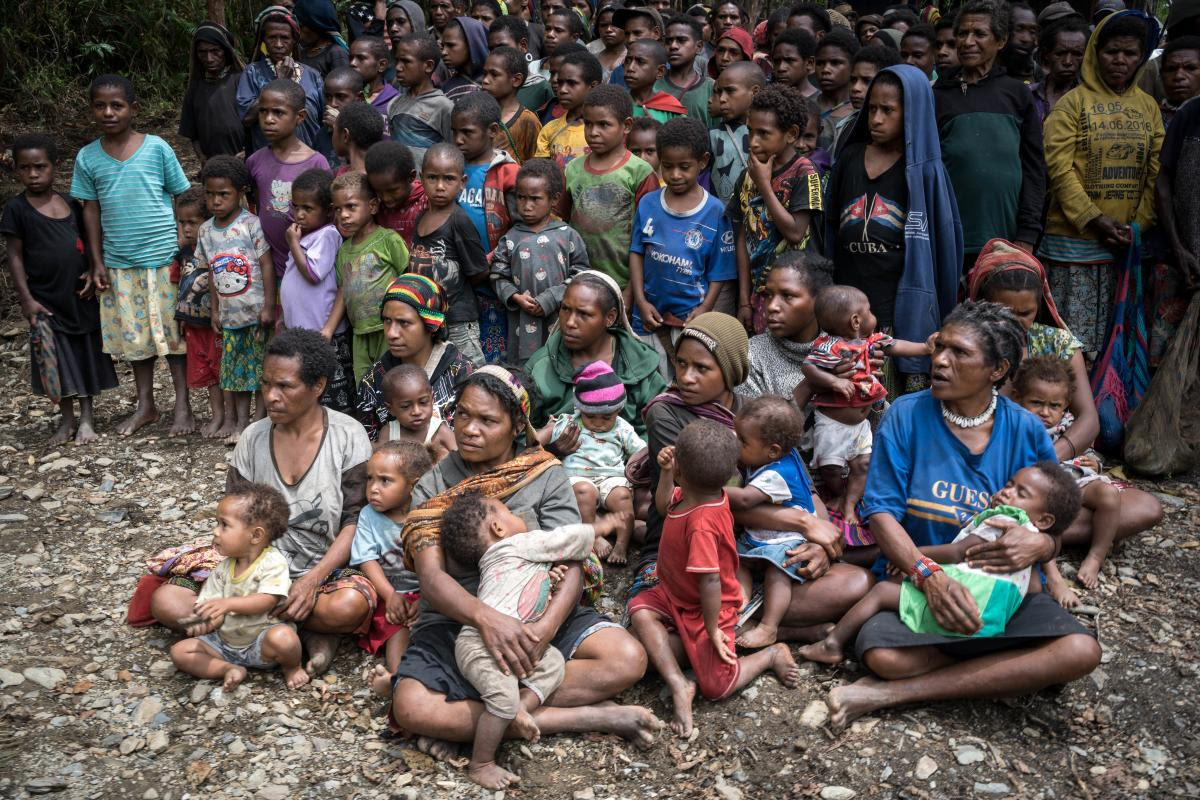People from Nduga, Puncak, Intan Jaya, Maybrat, Pegunungan Bintang, and Yahukimo are suffering while the armed conflict between the West Papua National Liberation Army and Indonesian security forces in these areas is ongoing. Many internally displaced people have little choice but to live in remote shelters in the forest, where they lack access to food, sanitation, medical treatment, and education. Local human rights defenders and churches, managing to access some of these shelters, have documented extremely poor living conditions. In Maybrat, for example, people are reluctant to return to their villages as military deployments and security force raids continue. According to data received from church informants, the total number of internally displaced persons from Maybrat has reached 1,836 persons, some of whom testified that the local government distributed rice and other food supplies. However, the funds used for the aid were deducted from the funds the village administration receives regularly. Internally displaced persons in Pegunungan Bintang had to deal with extreme weather conditions in the central highlands. Almost all from the Kiwirok District continue to live in forest shelters, although an estimated 200 people—many of them women and children—crossed the border to Papua New Guinea, where they live in a refugee camp in the town of Tumorbil. The displaced people’s food and supplies come from small gardens and hunting in the forest. Their informal camps are often located in remote areas in the forest which can only be accessed through small mountain trails. Church workers visiting such camps documented many health issues, as well as the danger of Indonesian military attacks and snipers. Human Rights Monitor is an EU-based international group promoting human rights through documentation and advocacy. The group works in collaboration with the World Council of Churches on situations of conflict and human rights violations in West Papua. Read the full report of the Human Rights Monitor: IDP Update 2022 | 



No comments:
Post a Comment